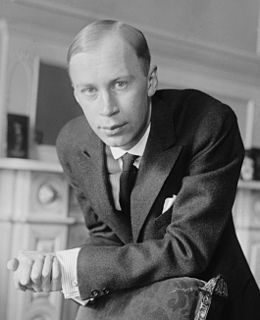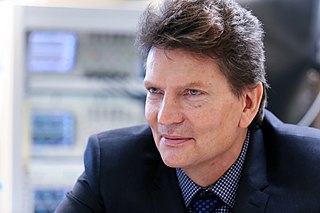A Quote by Deepak Chopra
Our biological rhythms are the symphony of the cosmos.
Quote Topics
Related Quotes
A human body can think thoughts, play a piano, kill germs, remove toxins, make a baby all at once. Once it's doing that your biological rhythms are actually mirroring the symphony of the universe because you have circadian rhythms, seasonal rhythms, tidal rhythms you know they mirror everything that is happening in the whole universe.
It seemed to me that had Haydn lived to our day he would have retained his own style while accepting something of the new at the same time. That was the kind of symphony I wanted to write: a symphony in the classical style. And when I saw that my idea was beginning to work, I called it the Classical Symphony.
Although humans inherit a biological bias that permits them to feel anger, jealousy, selfishness and envy, and to be rude, aggressive or violent, they inherit an even stronger biological bias for kindness, compassion, cooperation, love and nurture - especially toward those in need. This inbuilt ethical sense is a biological feature of our species.
Stars die and reborn […] They get so hot that the nuclei of the atoms fuse together deep within them to make the oxygen we breathe, the carbon in our muscles, the calcium in our bones, the iron in our blood. All was cooked in the fiery hearts of long vanished stars. … The cosmos is also within us. We're made of star stuff. We are a way for the cosmos to know itself.

































